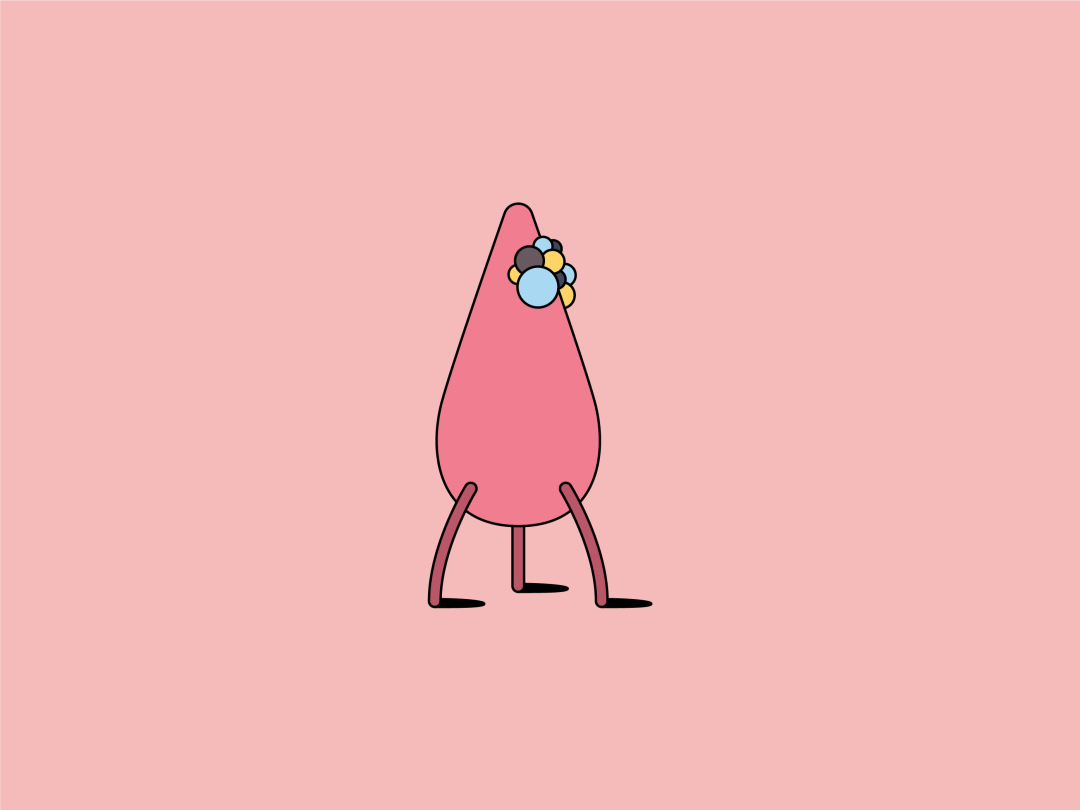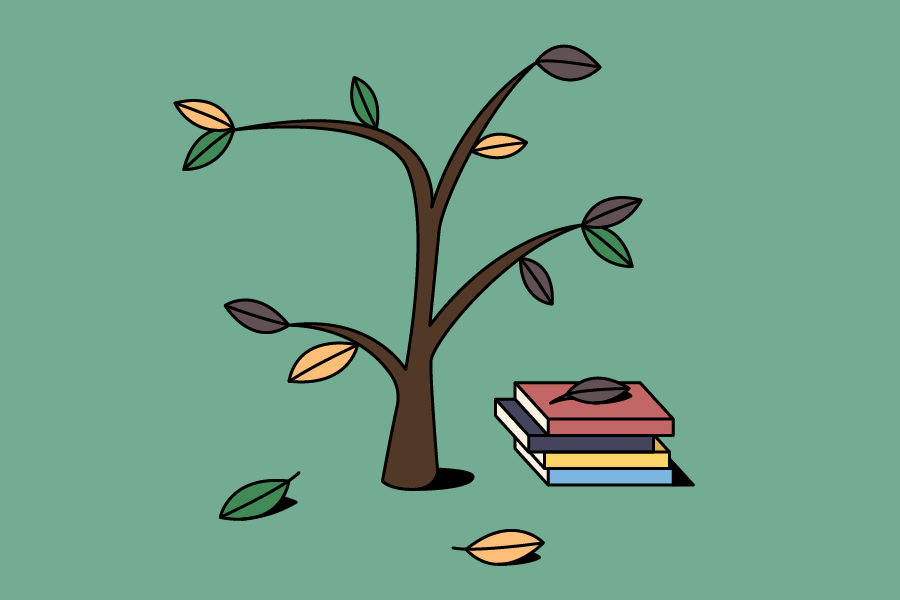Sign up to stay in the loop on new styles and sales!
Sign up to stay in the loop on new styles and sales!
UNDIE THE SURFACE: JAPANESE BREAKFAST
thinx archive
·5 min read
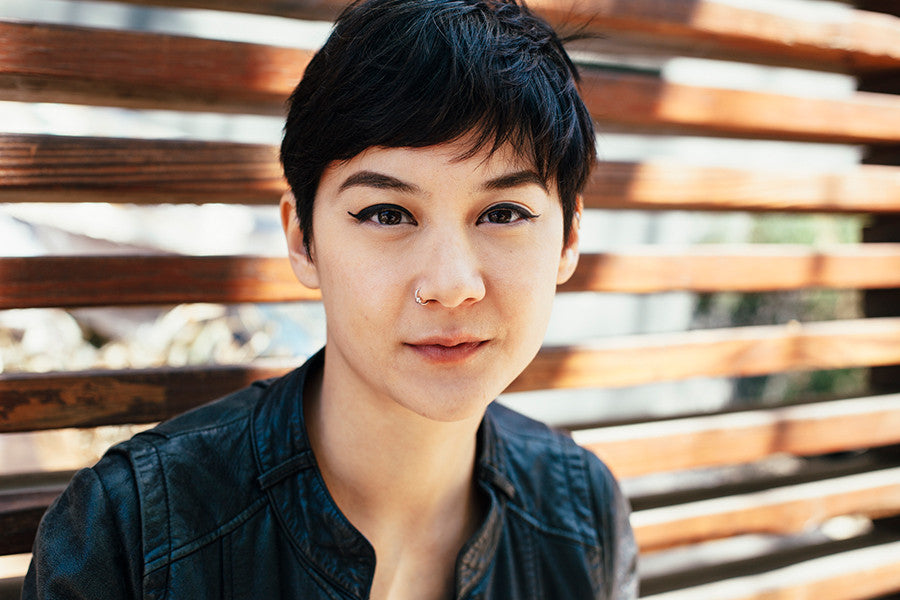
by Emma Glassman-Hughes | 09/08/2016
Just 5 days before she kicked off her tour with Porches, Michelle Zauner took time out of her busy schedule to meet with a couple THINXers. Seriously, we mean busy — after our interview she was immediately off to Coney Island for another project. We were so excited—practically giddy—and the questions just poured out of us; luckily, Zauner was totally game to answer them. Like the music from her band and solo project, Japanese Breakfast, Zauner talks with a sincerity and candor that creates the most enjoyable conversation (like, conversation that feels like 15 minutes but according to our recording was definitely an hour.) We chatted about her brilliant album "Psychopomp," music video creations, and her dream tours.
Kelsey: I saw you at the Silent Barn in April with Friendship, Roof Doctor, Fitz, and you were headlining. I remember seeing you on stage and thinking “Wow, I would really like to talk to her.” I guess we can start there: I noticed at the show, you were the only female performer. Is that a norm?
Japanese Breakfast: No, not at all, actually! Well several musicians performing that night were genderqueer, but it was one of the most male dominating shows I’ve played at in a long time. I typically play with a lot of women- i’ve been spoiled in the past year where I’ve been included in a lot of women-heavy bills, and not in a themey way that’s like “Women Rock!” No, they’re women musicians who want to play with other women. I love female voices more, and the musicians I’m listening to right now are female or genderqueer, so that was a different show for me. It was interesting!
KD: The audience was male dominated too! Which was funny, because after working at THINX for a year that’s not a common scene in my life anymore. I remember feeling a comradery with you that night. Can you tell us more about your name, Japanese Breakfast?
JB: I liked the way the two words sounded together. I’m not Japanese, I’m half Korean, and my whole life people would ask me if I was Japanese or Chinese. I would say no, and they would ask “Ok, well what are you then?”
I grew up in Eugene, Oregon, where the population is 98% white, so it was an isolating experience and I felt like the most visible asian cultures 20 years ago were Chinese and Japanese cultures-- Korean visibility wasn’t fully there. When i think of words that encompass asian foreignness, I wanted to pair it with a word that sounds very American, like breakfast. I think that the two words together sound curious and I wanted people to be intrigued.
Emma Glassman-Hughes: When you google “Japanese Breakfast” it pulls up your picture, and recipes! I love that juxtaposition.
JB: Yes, I love that. It’s nice that when people look me up also get to see some very nice pictures of food!
KD: I read that you used Japanese Breakfast as a way to grieve the passing of your mother.
JB: It didn’t start that way. I initially started with a side project, June, where I wrote and released one song every day for a month. I was feeling stuck because I used to play in a band called The Little Big League, and we had just finished our second record, but I still had so much to say. I wanted to create more, and thought June would be a good exercise in creating raw material without as many restrictions. I wanted to give myself a time limit and see what happened. It was also immediately gratified, I would put it right up and because it wasn’t under a label, I didn’t need to do any press and was in complete control.
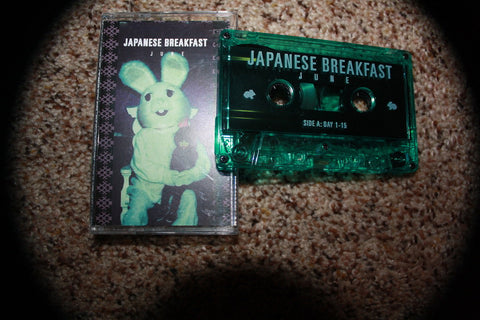
When my mom got sick I left Little Big League and moved back home to take care of her for a little over a year, and then stayed to be an emotional support for my father after she died. It was around that time I started writing Psychopomp. I didn’t have anything to do there and I needed something to do for me that was productive and private and could help me process what I had endured. I was without my band so I had to make it my own thing, so that’s how Psychopomp came about.
E: I feel like there are so many aspects of that that scream “vulnerability” to me, and that’s something I’m very fascinated by. Not only dealing with your family's situation, but trying out a new music project on your own and finding success with it.
JB: I think it was really liberating because I didn’t need to negotiate my creative voice at all. When you’re in a band there's a democracy, so it was validating to have Psychopomp be a successful project. I honestly didn’t think I would be able to tour again, I felt so vulnerable. Your traveling all the time, you're sleeping on couches, there is no door to shut, and that’s hard when you’ve gone through something so mentally overwhelming. I wanted to live a quiet life at the time, so I didn’t know if I could do it again. I did a touring punk band for 3 years.
So I moved to NY once I left Oregon. I got a job in advertising and was there for 9 months. Meanwhile I had this album, and really wanted to make it a physical, tangible record. I don’t feel like a project is fully complete until it’s pressed to vinyl. I’m romantic in that process. It was a way to immortalize my mom- her voice is on it, her picture is on it.
I spent a year at an advertising job that wasn’t for me, but while I was there Psychopomp started gaining traction and eventually I was ready to leave and start touring again.

KD: I remember seeing on your Twitter that you said that you’re so much happier and fulfilled than you were exactly a year ago. I resonated with that so deeply, it's funny when you think of yourself just a year before and think about how different things were.
JB: Absolutely. I hit rock bottom in a lot of ways. I think you hear that a lot--when you've given up, that's when things happen. I wish my mom could be here to see this now, and I wish she could have seen my current level of success but in the same breath I don't know if i would be in the position that i'm in now without being so vulnerable.
KD: I want to go back to what you said before about being on tour and how you’re not able to “shut the door.” I relate to this so intensely. “Shutting the door” is a legitimate feeling, and when i listen to your music i love listening to your music, I feel like it creates this really welcomed feeling of secluding yourself and reaching into yourself.
JB: I long for that feeling all the time! I’m an only child and I grew up pretty alone, we had 5 acres of property, and my bedroom was upstairs in this big house, so I had so much space, so it's funny that I ended up in a profession where I’m around people all the time. It's a great feeling but it's exhausting.
KD: Do you feel like Japanese Breakfast comes with a certain persona that is intentionally more extroverted?
JB: When I perform I feel super energetic. The music is super upbeat and it's fun to interact with them. I want to interact with people! It means so much that people listen to my music, I don't take it for granted. There are so many kids that are grieving or mixed race or people of color that i've helped in some way that want to talk to me and I very much want to talk to them. I remember not being able to connect with some of the idols at a show-- which I completely understand-- but it was disappointing.
EGH: Being a woman of color in this industry, do you ever feel any pressure in terms of connecting with your fans?
JB: Yeah, definitely. We’re living in a very different political and social landscape now. I hadn’t actually heard myself referred to as a woman of color until this year. The feelings of pressure I do have is to encourage more women of color to be involved in music, and not feel like they need to be in direct competition with other women in the industry-- I do believe this is something we are working to undo. At one time, there was a narrative that was like “there's only room for one women to make it, here.” I want to show kindness and encouragement.
KD: Even this morning, Emma and I were in a conversation with someone who was talking about how terrible Britney Spears was at the VMA’s compared to Beyonce, and then we all took a second to be like “wait, why is this the first narrative that pops into our head? Why is this the focal point? It shouldn’t be.”
JB: Rhianna’s my favorite, I absolutely loved ANTI. But Beyonce just isn’t human! It’s unfair to compare her to anyone else-- why put your energy into that debate?!
KD: There was a brief moment where I wondered if Drake was going to propose during her Vanguard Award speech.
EGH: I wouldn’t have been happy about that.
KD: Same. What’s your take on proposals, public or private?
JB: My proposal was different. My mom was sick, we had been together a year in a half. So I called him from Korea and basically said :If you see yourself proposing to be in the near future, you need to do it now or I’ll never forgive you.” And we basically planned the whole thing in 3 weeks. It was actually perfect, because I didn’t need to worry “Oh, what would my mom think of this?” or “How would my mom have done that?” She was at my wedding, which meant everything, and passed 2 weeks later. He proposed to me on the street and I think it was meant to be relatively private, but then 5 people walked by and screamed “Oh my god! Is this really happening?!” So I guess it was semi-private.
KD: I want to touch on your song Jane Cum--mainly because I’m obsessed with it.
JB: Oh, great! That’s a weird one, so I’m glad you liked it.
KD: The music video was phenomenal. I loved the imagery of you in the car in a woodland suburbia, because the song already felt very nostalgic and almost-homey to me, and driving around the woods was very much my adolescent experience.
JB: I wrote that song 3 or 4 years ago, and it’s funny because it wasn’t a single, but we wanted to make a video for it. I love the director Adam Kolodny, we made In Heaven together, he’s a good friend of mine. We knew we wanted to make a video for the next single Everybody Wants to Love You. but we saw a vision for this video. We saw the woods, super goth witch, a girl cult- it was so clear to us, the direction we wanted to go in. We filmed it in Freehold New Jersey in his parents backyard. We just finished the Everybody Wants To Love You video, and I’m so excited.
KD: Can you tell us a little about that, without giving too much away?
JB: It’s probably going to come out in late September or early October, and it’s my favorite video so far. After Jane Cum, I had this idea where I wanted to wear a traditional Korean hanbok, I wanted a big traditional Korean wig, and I wanted to mix the idea of a Korean Marie Antoinette with traditional Americanah imagery in Philadelphia. I wore a 5 pound wig made by the talented Celeste Welch, and actually had a bruise on my forehead from wearing it 14 hours a day! I do think it will be our beat one.
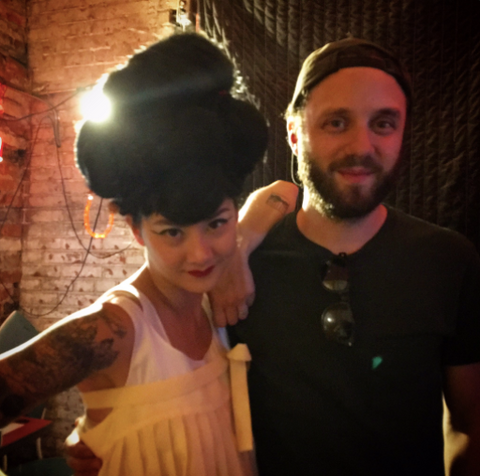
KD: Tell us about your tour with Porches.
JB: Well, what's great is that I went on a dream tour already, with Mitski. Then my booking agent came back to me and told me to write a list of all of the other bands I’d like to tour with. So I made a huge list, and told him my absolute number one pick was Porches. So he said “Okay” and came back and said “They’re going on tour in September, and they want you to come.” I couldn’t believe how easy the process was, and I couldn’t believe how lucky I was, again. I can’t wait.
EGH: Who would you like to tour with next?
JB:Carley Rae-Jepson or Teagan and Sarah, hands down. Future dream tour!
This interview has been edited and condensed for clarity.
by Emma Glassman-Hughes

